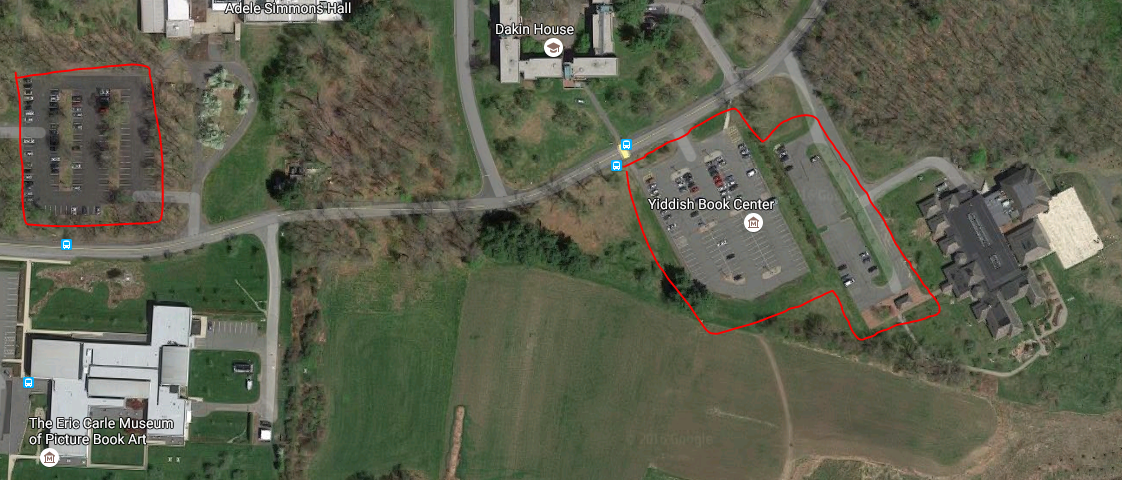PLENARY:
Treasure for the Finding: The Ongoing Adventures of the Yiddish Book Center
After rescuing a literature, what do you do for an encore? That’s just one of the questions Aaron Lansky will answer in this lively update on the work of the Yiddish Book Center. Lansky was 24 years old when, in 1980, he took what he thought would be a two-year leave of absence from graduate school to rescue endangered Yiddish books. At the time, scholars estimated 70,000 volumes could still be saved; Lansky and his colleagues collected that number in six months and went on to recover more than a million volumes. What was most surprising was not how many books they found, but how eager people were to read them. In recent years, titles in the Center’s pioneering digital library have been downloaded 1.7 million times, and the organization’s work has expanded to include translation, oral history, and wide-ranging cultural and educational programs for students of all ages and backgrounds. With insight and humor, Lansky will recount the Center’s latest adventures and reflect on the role of activist archivists and librarians in furthering understanding of our collective past, present and future.
Aaron Lansky, founder and president of the Yiddish Book Center
Aaron Lansky was a graduate student in Montreal in the late 1970s when he discovered that large numbers of Yiddish books were being discarded by younger Jews who could not read the language of their parents and grandparents. In the summer of 1980 he founded the Yiddish Book Center and issued a public appeal for unwanted and discarded Yiddish books. The work of Lansky and his colleagues over the past three decades has been described as “one of the greatest cultural rescue efforts in Jewish history.”
A native of New Bedford, Massachusetts, Aaron Lansky holds a BA in modern Jewish history from Hampshire College, an MA in East European Jewish studies from McGill University, and honorary doctorates from Amherst College, the State University of New York, and Hebrew Union College. Early in his career he was included by Esquire magazine in its first annual register of “The Best of the New Generation: Men and Women Under Forty Who Are Changing America,” and he received a so-called “genius grant” from the MacArthur Foundation in 1989. His bestselling book, Outwitting History: The Amazing Adventures of a Man Who Rescued a Million Yiddish Books, won the Massachusetts Book Award in Nonfiction in 2005. Aaron lives in Amherst with his wife, Gail. They have two daughters, Sasha and Chava.

PANEL
Building Bridges: Theory and Practice for Collections and User Access Across Boundaries
Invited panel featuring presentations and discussions on promoting access and connecting to users across the boundaries created by language, gender, policy regulations, and differing abilities.
Panelists:
Jennifer Arnott
Research Librarian at Perkins School for the Blind
Jennifer Arnott has been the Research Librarian at Perkins School for the Blind since May 2015. She grew up in the Boston area and received her BA from Wellesley College before moving to Minnesota in 1999. There, she got a job in an independent high school library and completed her MLIS (through the then joint St. Catherine University / Dominican University program) in 2007. In 2011, she moved to Maine to become the Information Technology Librarian at the University of Maine at Farmington. At Perkins, she answers reference and historical questions about the school, the history of blindness education, and related topics, helping everyone from 4th graders fascinated by Helen Keller to academic researchers. She will be speaking about providing accessible reference and resource materials, and about thinking through accessibility and access needs for a varying audience of library users. She writes occasionally about library topics at her blog at http://modernhypatia.info.
Amita Kiley
Collections Manager & Research Coordinator at the Lawrence History Center
Amita Kiley is the Collections Manager & Research Coordinator at the Lawrence History Center. Amita was raised in Lawrence and graduated from Northeastern University with a B.A. in American History in 2004. Her experience growing up in Lawrence fostered a love of the city and a strong sense of wanting to preserve its history. In 2001, as part of Northeastern’s Co-operative Education program, she found herself working at the LHC as a preservation assistant. She continued her professional career after graduation at the archive. In 2014, she moved into her current role as Collections Manager and Research Coordinator. She works closely with LHC’s Director and local historians, coordinates and supervises volunteers, handles walk in visitors and manages membership correspondence from the LHC office. Amita lives in Haverhill, MA with her husband and two daughters.
Alana Kumbier
Critical Social Inquiry and Digital Pedagogy Librarian at Hampshire College Library
Alana Kumbier is the Critical Social Inquiry and Digital Pedagogy Librarian at Hampshire College Library. She is the author of Ephemeral Material: Queering the Archive (Litwin Books, 2014) and co-editor of Critical Library Instruction: Theories and Methods (Library Juice Press, 2010). This fall, she is co-teaching a course at Hampshire titled “Beyond the Riot: Zines in Archives and Digital Space.” Her research and practical interests include accessibility in libraries, racial justice and anti-oppression work in library contexts, and the inclusion of materials related to sex and sexuality in libraries and archives. Alana holds a PhD in Comparative Studies from the Ohio State University, and an MLIS from the School of Library & Information Science at Kent State University.
Shannon O'Neill
Associate Director of Archives & Special Collections at Barnard Archives & Special Collections
Shannon O’Neill is the Associate Director of Archives and Special Collections and the History Librarian at Barnard College. Prior to joining Barnard, she was a librarian and archivist at the Atlantic City Free Public Library and the photo archivist for the Los Angeles Public Library. Shannon’s professional interests include community-based archival practices, radical histories and social justice issues, and the use of primary resource materials in education. She received her MLIS, with a concentration in archives, at UCLA in 2008.
Moderator:
Rob Cox
Head of Special Collections and University Archives at UMass Amherst
Rob Cox is the head of Special Collections and University Archives at UMass Amherst. A graduate of Haverford College, he split his time between paleontology and molecular biology before receiving a MILS at the University of Michigan (with a concentration in archives) and a PhD in early American history. Before coming to UMass, he held positions as head of manuscripts at the William L. Clements Library at the University of Michigan and as keeper of manuscripts at the American Philosophical Society. Rob teaches Archival Access and Use at Simmons School of Library and Information Science West, and also teaches in the Department of History at UMass. Among other subjects, Rob has published on the history of the American Spiritualist movement, the Lewis and Clark expedition, Quaker "missions" to the Seneca Indians, the history of photography, and the history of sleep. His other activities range from consulting work at the Alaska Native Language Center, serving on several granting committees, herding cats, and working with local historical societies and small libraries to describe, care for, and publicize their holdings, most recently with the Commonwealth Historical Collaboration.
SHORT PRESENTATIONS:
Presenters:
Molly Brown
MLIS Candidate, MA History Candidate at Simmons College, Graduate School of Library and Information Science
Mary Margaret Groberg
Outreach Archivist at Norwich University
Jen Hale
Archivist at Perkins School for the Blind
Veronica Martzahl
Digital Records Archivist at Massachusetts Archives
Massachusetts State Historic Records Advisory Board (MA SHRAB)


